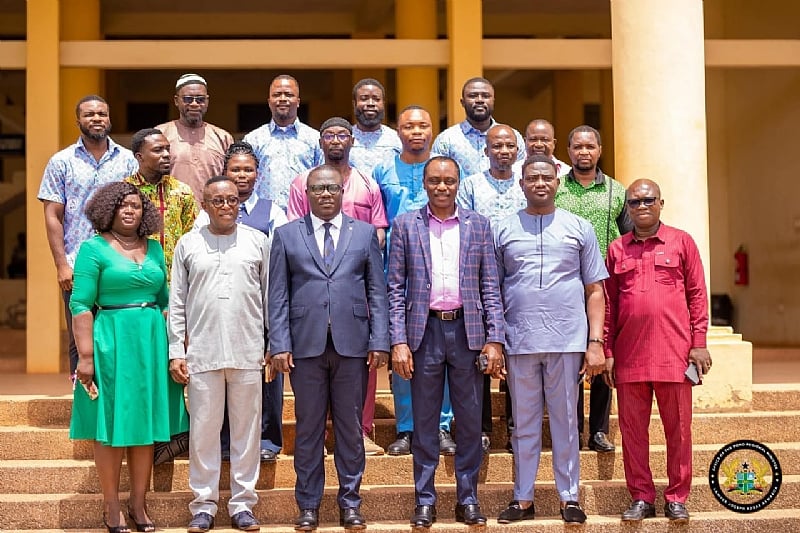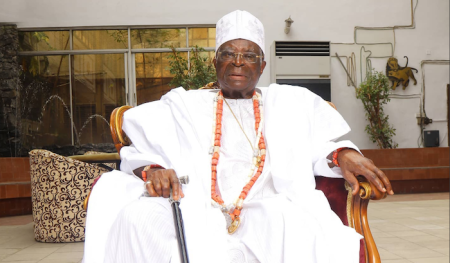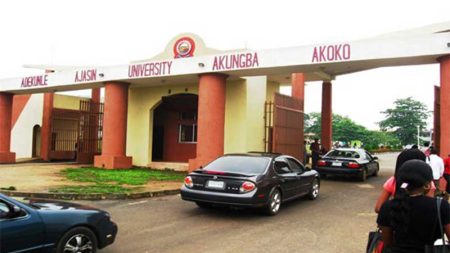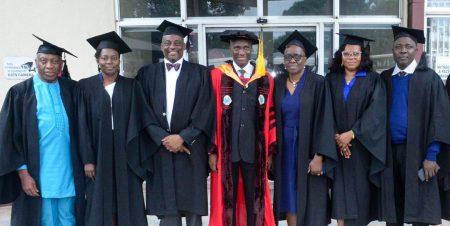The Materials Engineering Department of Sunyani Technical University (STU) celebrated its tenth anniversary, marking a decade of growth and contribution to Ghana’s industrialization efforts. The event, attended by dignitaries including the Bono Regional Minister and the STU Vice-Chancellor, highlighted the department’s achievements and its alignment with the goals of the Fourth Industrial Revolution. Starting with a single student and two lecturers, the department has grown to encompass over a hundred students and offers innovative programs in welding, metallurgy, minerals engineering, and energy systems. The theme, “Shaping the Fourth Industrial Revolution: A Decade of Advancing Welding and Energy Solutions through Materials Engineering,” emphasized the department’s commitment to equipping students with the skills needed for a rapidly evolving technological landscape.
The Bono Regional Minister, Joseph Addae Akwaboah, lauded the department’s focus on practical education in areas crucial for national development. He underscored the importance of technical competencies in achieving Ghana’s industrialization and energy sufficiency goals, emphasizing the government’s investment in TVET institutions. The Fourth Industrial Revolution, characterized by automation, artificial intelligence, and advanced materials, presents both challenges and opportunities for Ghana. The department, he noted, plays a vital role in preparing a workforce capable of navigating this new era by providing training in areas such as welding technology, energy systems, and material science. The government’s commitment to TVET is reflected in investments in infrastructure and creating enabling environments for effective teaching and learning.
STU Vice-Chancellor, Ing. Prof. Kwadwo Adinkrah-Appiah, highlighted the department’s remarkable growth in student enrollment and program diversification over the past decade. He reiterated the university’s commitment to supporting the department’s development through enhanced research, innovation, and industry collaborations. These partnerships, he explained, bridge the gap between theory and practice, equipping students to tackle real-world challenges in welding techniques, responsible mineral exploration, and improved energy efficiency. He encouraged further collaboration with industry and academia to maximize the department’s impact on the fields of energy, welding, and emerging materials technologies.
The department’s success is not only reflected in its growth but also in its contribution to national development. Its focus on practical skills development aligns with Ghana’s drive towards industrialization and self-sufficiency in key sectors. The training provided in welding, metallurgy, and energy systems addresses crucial needs within the country’s industrial landscape. The department has become a key driver of practical education, contributing significantly to Ghana’s industrial workforce. Furthermore, the department’s emphasis on innovation and research positions it to contribute to advancements in welding techniques, responsible mineral exploration, and energy efficiency, all of which are critical for national development.
The department’s alignment with the Fourth Industrial Revolution further solidifies its relevance. By focusing on areas like automation, artificial intelligence, and advanced materials, the department prepares graduates for the jobs of the future. The emphasis on these cutting-edge technologies ensures that graduates are not only equipped for current industry needs but also prepared for the rapidly evolving technological environment. This forward-looking approach strengthens Ghana’s position in the global landscape and contributes to its long-term economic growth.
Looking forward, the department aims to build on its achievements and continue its impactful work. The emphasis on strengthening partnerships, enhancing research and innovation, and adapting to the demands of the Fourth Industrial Revolution will guide its future endeavors. By fostering collaborations with industry partners and academic institutions, the department aims to bridge the gap between theory and practice, ensuring that graduates are well-prepared to meet the challenges and opportunities of the evolving technological landscape. The department’s commitment to innovation and research will further contribute to advancements in key areas, positioning it as a leading force in Ghana’s technological advancement.














